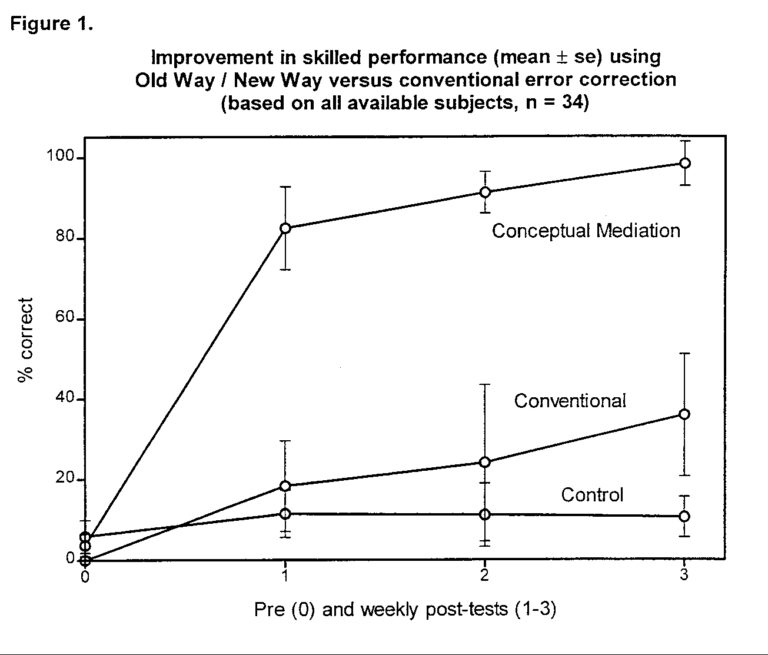Mediational Learning
Conceptual Mediation - Old Way / New Way
What is Mediational Learning?
A new theory of learning and associated methodologies that specifically address the learning difficulties experienced by all individuals whenever change is required in their prior habits, skills or concepts has been developed (Lyndon, 1989, 1995, 1998, 2000). The new theory and new methods provide a distinctive pedagogy that addresses major issues of learning. When an individual seeks to change already acquired habits, skills, or concepts the approach to such change is by necessity a mediational process that places special demands on the learner. The term, mediation, is here used to mean that an individual consciously attempts to bring about a reconciliation of his or her conflicting habits, skills or concepts.
Mediational Learning theory describes and explains the critical role in conceptual change of psychological phenomena such as proactive inhibition, retroactive inhibition, accelerated forgetting and unlearning. Proactive inhibition is best understood as the effect of conflicting prior knowledge on new learning. Despite a person’s best efforts to change, prior habits, skills or concepts quickly regain control over an individual’s performance.
Accelerated forgetting is a fundamental characteristic of human memory. It is an essential aspect of the perceptual process that is activated whenever there is conflict between what is already known and what is being taught. It is now understood that proactive inhibition causes the accelerated forgetting of any new but conflicting habit, skill or concept, despite the practice of the newly learned habit, skill or concept.
Mediational Learning theory explains how we can redirect accelerated forgetting and thus facilitate the learning process. This is achieved through mediational learning strategies such as Old Way/New Way (Lyndon, 1989), which is used to change habits and simple skills; Skill Mediation (Lyndon, 1998), used to change complex educational, work or sports skills; or Conceptual Mediation (Rowell, Dawson and Lyndon,1989; Dawson and Lyndon, 1997; Lyndon, 2000), which is used to change an individual’s misconceptions in, for example, mathematics or science.
Explore The literature
A collection of papers covering both the theory and practice of Mediational Learning and Old Way / New Way and other related research.
Learning material
Interested in applying Conceptual Mediation and Old Way / New Way in a practical setting? Have a look at the learning material that’s on offer for educators to use with their students.
